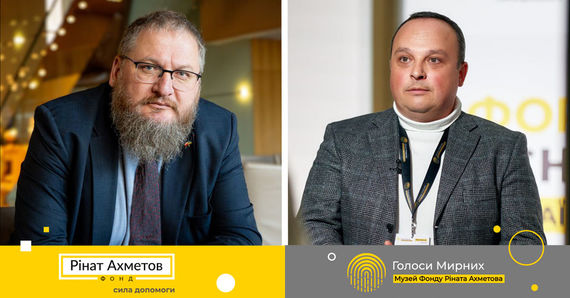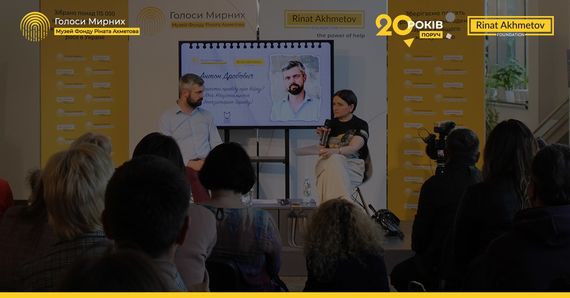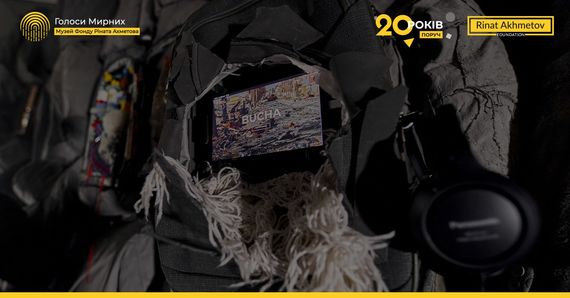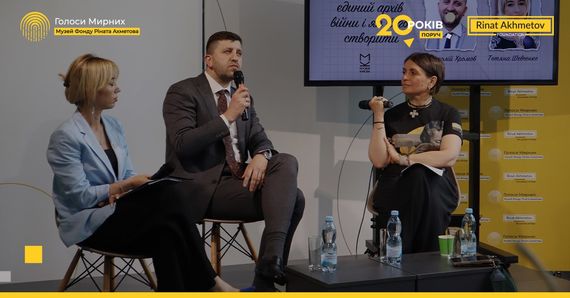“The Forum of Oral History of Ukraine”: Does the History of Wars in Ukraine and the World Repeat Itself?

This autumn, the first Forum of Oral History of Ukraine was held in Kyiv, organized at the initiative of the Museum of Civilian Voices of the Rinat Akhmetov Foundation. The event brought together Ukrainian and global documentation initiatives and created an international professional community that exchanges, on an ongoing basis, ideas, and experiences of documenting wartime events.
Within the framework of the community, speakers and special guests of the Forum continue to discuss some essential questions regarding oral history and documentation of wartime experiences. In particular, they shared their views on the theory that history is ostensibly cyclic and repeats itself over some years.
Anton Liagusha, candidate of historical sciences, academic director of master’s social and humanitarian studies at the Kyiv School of Economics, believes that history does not repeat itself, while the brutal behaviour of people does.
“History is not cyclic. Absolutely. The next generations will not understand... The history of the First World War and the Second World War was documented, and many crimes are documented: the war in the Balkans, genocide in Rwanda and Cambodia, etc. History does not repeat itself, but people repeat themselves in history. The most important question for me, which remains unanswered, is this: at what point do we turn from humans into beasts in a war context? Where is that second when yesterday you were a human who loved good things, who had children, and tomorrow you are a beast, and you commit crimes?” the historian deliberates.
Mr Liagusha emphasized the importance of documenting the testimonies of people who survived the war.
“For us to be able to speak openly, to have our own voice, international in the broadest sense of the word, the voice of our own history, it is very important to collect testimonies. So that Russia, with its propaganda and billions spent on it, could not block this “radio broadcast” with its voices,” the expert noted.
Dr. Piotr Cywiński, historian, public figure, director of the Auschwitz-Birkenau State Museum, and president of the Auschwitz-Birkenau Foundation (Poland), voiced his opinion on whether the history of war repeats itself in a certain way over the years.
“I don’t like the perspective of history that repeats itself. History is something more complicated. However, after the war, in the whole Europe, the West, and the East were also trying to build a world without war, a world of cooperation, a world more human, a world more sensitive to the human person. And this was the sense of the post-war period. Now, what Russia is doing in Ukraine means rejecting all the post-war civilization. It is something like putting themselves completely outside the evolution of history in Europe,” said Mr. Cywiński.
The historian stressed the significance of such projects as the Museum of Civilian Voices of the Rinat Akhmetov Foundation.
“It is an absolutely essential project for the future, for memory, for education, but it can also be very important for the victims themselves. In order to tell their story. People do not live forever, and it will be extremely important for the next generations to hear about their grandparents, to see the reaction, to understand what really happened to their families,” said Dr. Cywiński.
The Museum of Civilian Voices of the Rinat Akhmetov Foundation documents testimonies of civilians about the war, told first-hand, and has already collected more than 90,000 stories. Share your story on the Museum’s portal https://civilvoicesmuseum.org/ or via the toll-free hotline 0 (800) 509 001.



